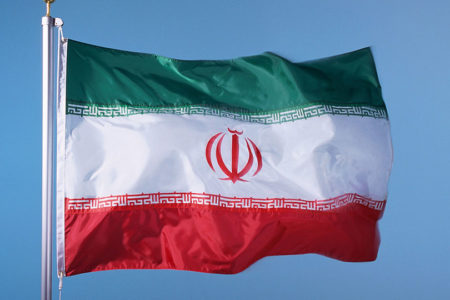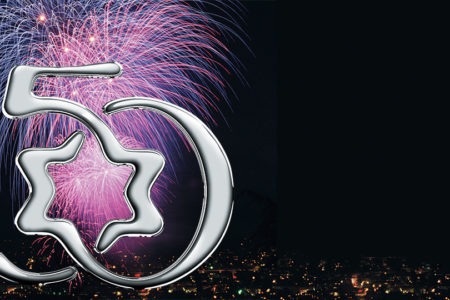The Call of the Shofar
Have you ever been driving along the highway when, seemingly out of nowhere, you hear the shrill sound of sirens? At first you are startled as the high-pitched sound seems to engulf you from almost every direction. Instinctively you try to locate the vehicles producing the loud, echoing sounds. At the same time, you begin to ease your car over to the side of the road, as the law requires. Finally you spot the vehicles responsible for all the ruckus and watch them as they speed to wherever the problem is located.
The sound of the siren may be annoying, but it is a necessary and effective attention-getting device. Today the wails of sirens in our cities seem much too commonplace, but when they sound, most people take them seriously and usually respond in dutiful and appropriate fashion.
Throughout Jewish history, we find a record of a particular sound that prompts a certain action, as the response to a siren. This sound, not especially pleasing to the ear, is recognized by the Jewish people in much the same way as a Scotsman or Irishman responds to bagpipes. The source of this unique sound comes from the oldest wind instrument in the world. It is called a shofar.
The shofar is a ram’s horn. It is very difficult to blow and is done in a way similar to, but not exactly like, a trumpet. In fact, the word shofar is often translated trumpet in Scripture. The shofar is most often linked to the account in Genesis 22, in which Isaac was to be offered as a sacrifice. The Angel of the Lord interceded just as Abraham drew his knife to kill Isaac. In Isaac’s stead, a ram—caught in a thicket by his horns—was sacrificed. As one rabbi explained, we blow the shofar because “The Holy One, blessed be He, said, ‘Sound before me a ram’s horn so that I may remember on your behalf the binding of Isaac the son of Abraham and account it to you as if you had bound yourselves before me.’ ”
The Jewish Scriptures record numerous times on which the shofar sounded. The first time was in Exodus 19:16, when its blast acknowledged the presence of God before His people. Leviticus 25:9–10 records that it was sounded to herald the year of Jubilee, signaling the release of slaves and debt, to “proclaim liberty throughout all the land unto all the inhabitants thereof.” You may recognize this verse as engraved on our own nation’s Liberty Bell. Joshua 6 records the shofar sounding just before the walls of Jericho came tumbling down. Ehud blew the shofar to call the Israelites to battle against the Moabites (Jud. 3:27). The sound of the shofar was heard as the people went to the fortified cities in Jeremiah 4:5. It was blown to warn of danger as enemies tried to stop the rebuilding of the walls of Jerusalem: “In whatever place ye hear the sound of the trumpet, resort ye there unto us. Our God shall fight for us” (Neh. 4:20). When a new king took the throne, the shofar would sound a loud blast (1 Ki. 1:5–39).
Bible prophecy states that the sound of the shofar will be heard when the Messiah comes (Zech. 9:14), as it will when the Jewish people return to their land (Isa. 27:13).
Moving forward in history, the shofar continued to hold great significance for the Jewish people, even as it came to be used for other occasions. During the Middle Ages, it was sounded to announce deaths and to mark the beginning of the Sabbath. The shofar served as a reminder of God’s giving of the law at Sinai, the belief being that when Moses received the Ten Commandments the second time, he blew the ram’s horn to remind the people not to sin, as they had done when they built the golden calf. At this time, too, began the ritual of sounding the shofar on each day during Elul, the Hebrew month preceding Rosh Hashanah (Jewish Book of Why, p. 224). It was to be a daily reminder of God’s sovereignty and mankind’s need to repent.
The shofar’s jubilant sound was heard in 1967 when Israeli paratroopers captured East Jerusalem and properly restored the capital of Israel. It was blown at the Wailing or Western Wall by the chief rabbi of Israel. Today the shofar is sounded in Israel to inaugurate new presidents and prime ministers, reminiscent of the days when the nation had kings.
One of the sages of Israel listed ten reasons to sound the shofar today:
- To proclaim the sovereignty of God, because it was used at the coronation of kings.
- To herald the beginning of the Ten Days of Awe (the time between Rosh Hashanah and Yom Kippur).
- As a reminder of the giving of the law and the need for faithfulness.
- As a reminder of the prophets who loudly sounded their voices to a world that needed to hear.
- As a reminder of the destruction of the Temple.
- As a reminder of the Akedah (substitute for Isaac).
- To inspire awe.
- As a summons to the heavenly court on the Day of Judgment.
- As a call to the Jewish remnant to come home.
- As a reminder of the resurrection.
Maimonides said, concerning the sounding of the shofar, “Awake, O sleepers, from your sleep, O slumberers, arouse ye from your slumbers and examine your deeds. Return in repentance and remember your creator.”
According to the Talmud, rams horns are the horns of choice, but the horns of almost any other kosher animal can be used, including sheep, goats, antelopes, and gazelles. Only cow and calf horns are forbidden, due to the incident described in Exodus 32, when the children of Israel fashioned a golden calf.
The rabbis say that merely listening to the sound of the shofar is not enough. To derive any real meaning from it, the listener must concentrate on the sound. Some rabbis have gone even further, teaching that redemption itself could be wrought “through the horns of the ram” (Rabbah 29:10, Talmudic commentary on Leviticus). It is also believed that Satan becomes confused when the shofar is sounded. For this reason, it sounds often on Rosh Hashanah, thus preventing him from charging anyone with sin before the Day of Judgment.
Three sounds are basic to the blowing of the shofar. Tekiah is a short blast that ends abruptly. This is described (though not by name) in Numbers 10:5–8, as is the second type, teruah, which consists of nine staccato blasts. Shevarim is three short blasts. One long, sustained sound is called tekiah gedolah, or the great tekiah. On Rosh Hashanah, the sounds are called out in a particular order: Tekiah—shevarim—teruah—tekiah—tekiah—shevarim—tekiah—tekiah—teruah—tekiah gedolah.
Unless it is the Sabbath, in which case the shofar is silent, most congregations will hear one hundred blasts from the shofar on each of the two days of Rosh Hashanah. The reason is given in Psalm 89:15: “Blessed are the people that know the joyful sound.” Because hearing the sound of the shofar is a blessing, one can expect to hear one hundred blasts as the Day of Atonement approaches.
It is required that the person who blows the shofar must be of sound religious and pietistic character. He should be familiar with the laws and traditions surrounding his awesome task.
Two blessings are recited over the blowing of the shofar. The first is said as a reminder of the command to hear the sound, and the second is to thank God for being present at the time of the blowing.
The greatest sounding of the shofar is yet to come, “at the last trump; for the trumpet shall sound, and the dead shall be raised incorruptible, and we shall be changed” (1 Cor. 15:52). The shofar will blast as the Messiah Jesus calls His saints (the church) to meet Him in the air. For us, as believers, it won’t be the shrill warning of the siren, but the call to go and be with our Lord forevermore.








I have been woken out of my sleep to the sound of the horns. I heard the horn blow a few times, one after the other. This has happened more than once. What could it mean?
Can anyone blow the horn? A Baptist member, is that a okay?
Of course you can, as long as you know and learn the proper use of it, how it sounds like it. By using the Numbers 10:5–8, as is the second type, teruah, which consists of nine staccato blasts. Shevarim is three short blasts. One long, sustained sound is called tekiah gedolah, or the great tekiah. On Rosh Hashanah, the sounds are called out in a particular order: Tekiah—shevarim—teruah—tekiah—tekiah—shevarim—tekiah—tekiah—teruah—tekiah gedolah.
Youtube it so you learn.
God called me to blow the ram’s horn (shofar) in Kenya. I just got back. From 5 weeks going across that nation from Nairobi to Lodwar. It was an incredible experience. Thank you for your article. I will be posting photos next week. It was overwhelmingly received everywhere I went.
I am not Jewish…I am grafted in.